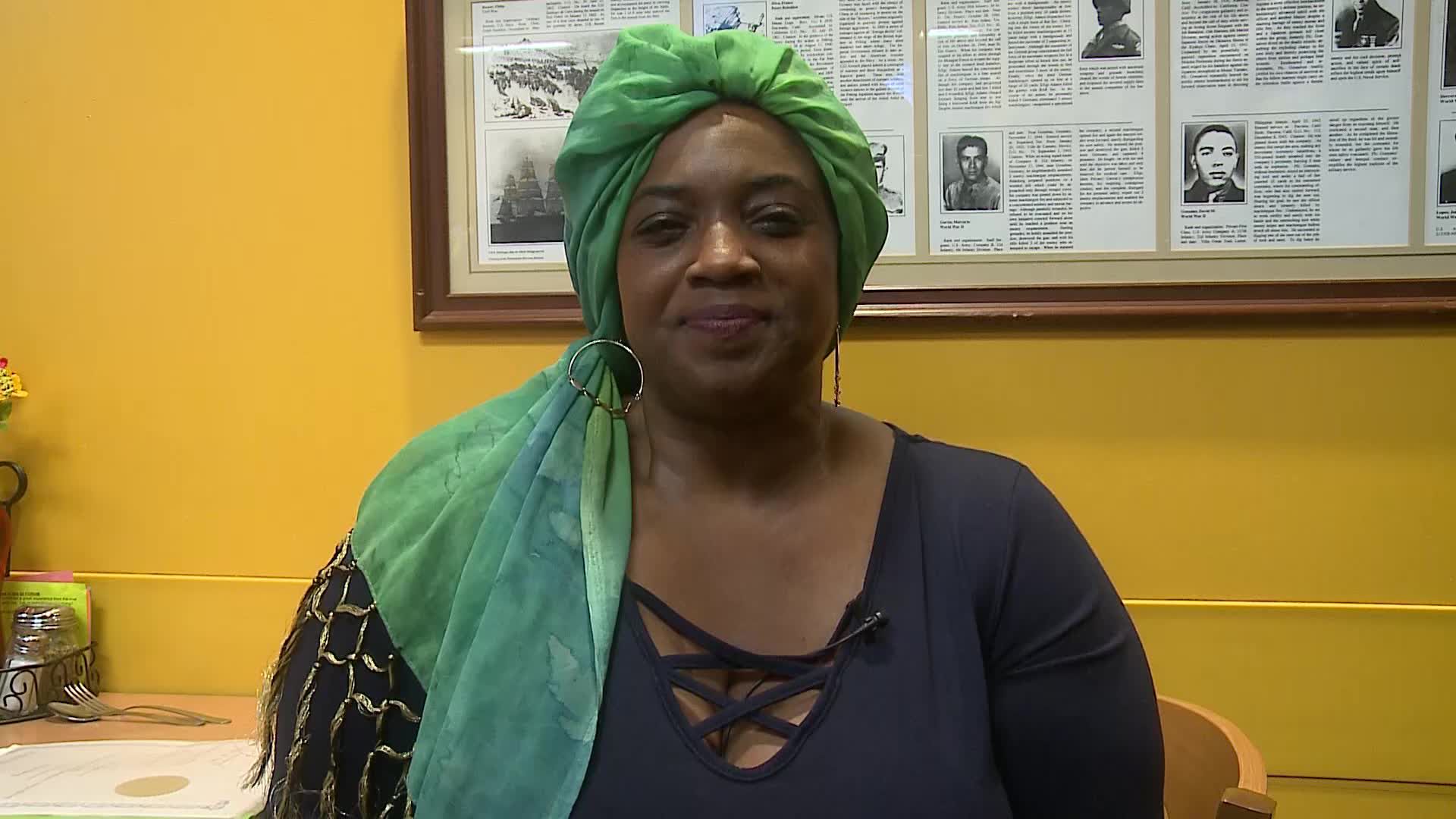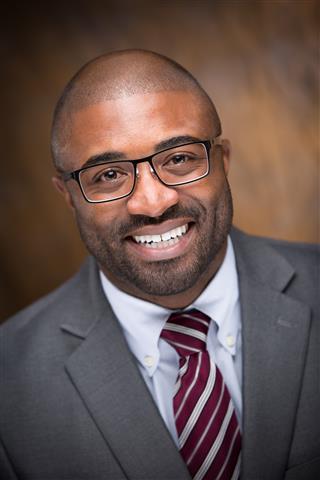Suspended Youth
Would you be willing to uproot your life and family from your community in search of a quality education for your child? That may sound extreme, but for some parents of students attending one of 63 elementary schools in Omaha Public Schools (OPS) it is their only option.
Precious Lesley
Precious Lesley made the life changing decision to relocate her family from familiar midtown Omaha to the suburbs of Millard so her son could attend a school within Millard Public Schools (MPS). The choice came after several years of frustration from her son receiving multiple punishments up to and including suspensions, starting in kindergarten.
Lesley explained that her child went from having teachers that worked to understand him as an individual and celebrate his unique strengths to teachers who handed out penalties swiftly and repeatedly:
“It was very apparent that these [teachers] weren’t accustomed to the way that some of their students spoke or interacted with them or each other. They were very frightened, intimidated, didn’t even know how to handle it in any way and then it got to the point where they were quick to give a referral. Get the kid out of class and let somebody else deal with it, or you know suspend the student. You are facing younger educators and their ego and desire to prove themselves, and the older generation with old school ways, and the kids are just suffering,” she said.
Through evaluations, Lesley found that her son tested above his grade’s average scores and was not being challenged sufficiently at school. He qualified for OPS’s “Challenge Program,” which is designed to help meet the needs of high-ability learners. Unfortunately, the school her son attended did not have the funding to staff the Challenge teacher position and Lesley was not offered other viable alternatives to meet his educational needs.
After careful planning and meticulous research, Lesley chose to move her family into Millard. Since relocating, she says her son has been thriving and there is more frequent one-on-one attention from MPS educators with her family. Although it was a hard choice, her child receiving an education where he is challenged and free from excessive suspensions, that she believed stemmed from a lack of cultural cognizance, made the move to MPS worth it for her.
Jacqueline Dumas searched within the OPS district to find the best school for her three children at the elementary level. A graduate of OPS and mother of five, Dumas believes there needs to be accountability measures taken to ensure consistency across the district. Her experience moving around Omaha revealed dramatic differences in quality of some schools over others, which she partially attributes to leadership of principals, “If your leadership is not doing what they’re supposed to be doing, then the flock is going to flee. I know many teachers that have left OPS because they just absolutely can’t anymore, they’ve had a traumatic experience that just wipes out how much they love the job, how much they love the kids, how much they love the classroom. It’s crazy how often it happens too.”
Quick Fact, Unlocking the Door to Learning: Trauma-Informed Classrooms & Transformational Schools - Education Law Center
Numerous studies, including one from the Education Law Center, show the psychological impact of disciplinary practices in a child’s formative years and how it can hinder their ability to engage effectively in the classroom. Dumas thinks trauma is one of the first aspects to analyze when developing such measures,“Trauma looks like different things, I think OPS really needs to take a chance to sit back and look at that and realize what trauma is instead of ‘this is the rule, this is what we are going to fly by.’ You need to come to the understanding that zero tolerance never works in any situation, they should eradicate that whole process of thinking,” she said.
In an effort to advocate for other OPS students who may not have the ability to switch districts, Precious Lesley attended a public forum at North High created to facilitate conversation regarding OPS elementary suspension and expulsion rates.The forum, held on December 9th 2018, was organized and facilitated by Leo Louis; community leader and concerned OPS parent. Louis extended invitations to OPS staff, faculty, and administration to attend the meeting. School Board President Marque Snow (Representative for District 2) and Tonya Ward from the Learning Community of Douglas-Sarpy were in attendance.
In the beginning, facts and data were exchanged. OPS served 30,830 students in grades Pre-K through sixth grade in the 2017-18 school year and administered 1,975 suspensions to elementary students. Of those suspensions, 56.3% were African American students. It is important to note that African American students make up 24.8% of the elementary age population.
In light of the statistics, Louis called the meeting to devise constructive solutions for both parents and the school district to address the dire disproportionality. “Before we go in on anything else, we are going to take responsibility as community first!” expressed the organizer, “I want you come up with a solution of what you can do, in your home, to change your child’s behavior, and your child’s academic success.”
Leo Louis preparing for the December 9 meeting
Suggestions were recorded and later shared with participants. Pointers for parents included: learning better time management, establishing open communication with teachers and administration, proactive engagement with children outside of the classroom, and even evaluating a child’s nutritional needs.
Ultimately though, people wanted to know why are Black students being disproportionately punished? Also, why are out of school suspensions a punishment at the elementary level? Although there were no solitary answers to either question, those in attendance offered up their reasons and experiences of how they have been impacted. One parent voiced the difficulty of taking off taking work, and losing income, to stay home with a child that had been suspended.
One theme was recurring, the need for cultural awareness for a school district that is mostly students of color but a majority of the educators are White. Some referenced the flawed stereotype of the “angry black male/female” being perpetuated by the news and media. Lesley posed this question to Louis:
“Has OPS provided you with any information on what they are doing in the way of diversity training on educating teachers that are in the classroom with these students on what is probably cultural differences? What are they doing to get these teachers who might not be used to working with Black children to understand that perhaps if a Black student is talking a little louder they are not being aggressive?”
Marque Snow fielded the question and referenced the Multiple Tiered System Supporting Behavior (MTSS-B), the disciplinary protocol employed by OPS. Lisa Utterback, the director of the Family and Community Service Department (FCSD) is said to be leading an initiative with principals and staff in schools to build understanding with their students and ensure every intervention on the MTSS-B is explored before making a recommendation to suspend or expel.
Utterback was informed of the meeting prior to its occurrence and was not in attendance. Snow stated the MTSS-B programs have been in place for about three or four years. When asked what accountability measures were in place and who was overseeing those programs, Snow said he was not able to answer the question further and suggested that those concerned speak with Ms. Utterback and her office about how policies and procedures are developed.
Gabrielle Gaines-Liwaru, spouse of now former OPS Director of Equity and Diversity (DED) Sharif Liwaru, shared her perspective as an arts educator, “My evaluation of what has not been able to be done is professional development in cultural competence or cultural proficiencies, bias deconstruction trainings. I’ve worked in those areas with adults and children, for the last four years or so, underneath a different superintendent, there were no pushes or encouragement for the DED to have a budget to sustain that kind of training or implement things that would build cultural competence.”
One thing became abundantly clear as the meeting moved on. The current methods of disciplinary action implemented by OPS, including but not limited to suspension policies, are not benefiting students. To close out the meeting, parents and community members suggested a number of alternatives to explore including peer-to-peer mentorship, programs for children to explore their passions, principal accountability measures, and mental health and wellness support within schools.
To keep up with developments and organizing efforts related to the suspensions and school-to-prison pipeline visit keepkidsinschool.org.
Dawaune Lamont Hayes contributed to this report.







